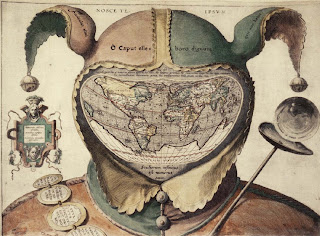פְּֽרִי־צַ֭דִּיק עֵ֣ץ חַיִּ֑ים וְלֹקֵ֖חַ נְפָשׂ֣וֹת חָכָֽם~ Proverbs 11:30
"The fruit of the righteous is a tree of life;
and he that winneth souls is wise." (KJV)
After hearing the proverb about 'winning souls' once again, my frustration with it led me to check how it should actually be translated and what it actually means. There's no question that it does not teach anything about evangelism. There are multiple possible meanings and more than one way of translating most of them. A more accurate literal translation the MT would be as follows:ἐκ καρποῦ δικαιοσύνης φύεται δένδρον ζωῆς
ἀφαιροῦνται δὲ ἄωροι ψυχαὶ παρανόμων
"From the fruit of righteousness grows a tree of life,
but the lives of the lawless are cut short."
(LXX)
Before discussing the second clause (B), the awkwardness of the first clause (A) should be noted. It is strange because it seems backwards: the tree should not come from the fruit but vice versa. I think the best way of interpreting this is to take "a tree of life" as a metaphor for 'long life,' which is a prominent throughout Proverbs as what accompanies the way of wisdom and righteousness.(A) "The fruit of justice/righteousness is a tree of life;
(B) and he who takes/acquires lives/people is wise."
Clause (B) now seems very strange. We can take it to mean: (i) "he who takes lives" as in 'he who kills people' [cf. Ps.31:14, where we read, "they scheme together against me to take my life" (Hb. לָקַ֖חַת נַפְשִׁ֣י)]; or (ii) "he who acquires people" as if to say 'a wise man has many children.'
There is a third possible meaning, not based on the Hebrew of the MT, but based on taking the LXX variant of the second clause and assuming an alternative word for the Hebrew "wisdom" (Hb. חָכָֽם). Assuming a Hebrew variant underlying the LXX, the word suggested by Roland Murphy (Word Biblical Commentary) is חָמָֽס meaning "violence." Morphologically we see that both words share the same first consonant, het, and both share the letter mem. Also it is possible that the scribe expected the proverb to be an instance of antithetical parallelism instead of synthetic parallelism. This makes sense of the LXX reading although it does not prove that the LXX is in this case more reliable. It is also worth noting that the second clause of the LXX--"but the lives of the lawless are cut short"--interprets the Hebrew's "takes lives" to mean an 'untimely end' or a 'short life.' This fits as an appropriate contrast with how I have interpreted (A) in the Hebrew (i.e. "a tree of life" = 'long life'). But I find this way of interpreting "takes lives" as implausible. I think this is fairly obvious. It suggests that the translator struggled in rendering the proverb in Greek as both accurate and understandable. As I pointed out, the Hebrew is awkward so this would not be surprising. One wonders whether the translator felt the freedom to alter the second clause so that it would be consistently contrastive. At this point I do not think there is sufficient reason to abandon the MT for a hypothetical reconstruction through an ancient version.
Going back to the MT, I think it is best to read (B) in the second sense of (ii) "acquires people" meaning 'having many children.' This also fits well with the first clause's teaching of 'long life' since children are meant to be a sign of prosperity and long life and prosperity are allied themes for the righteous and the wise man throughout Proverbs.
So here's a better translation:
"The fruit of justice is a tree of life;
and he who acquires people is wise."
~ Proverbs 11:30






